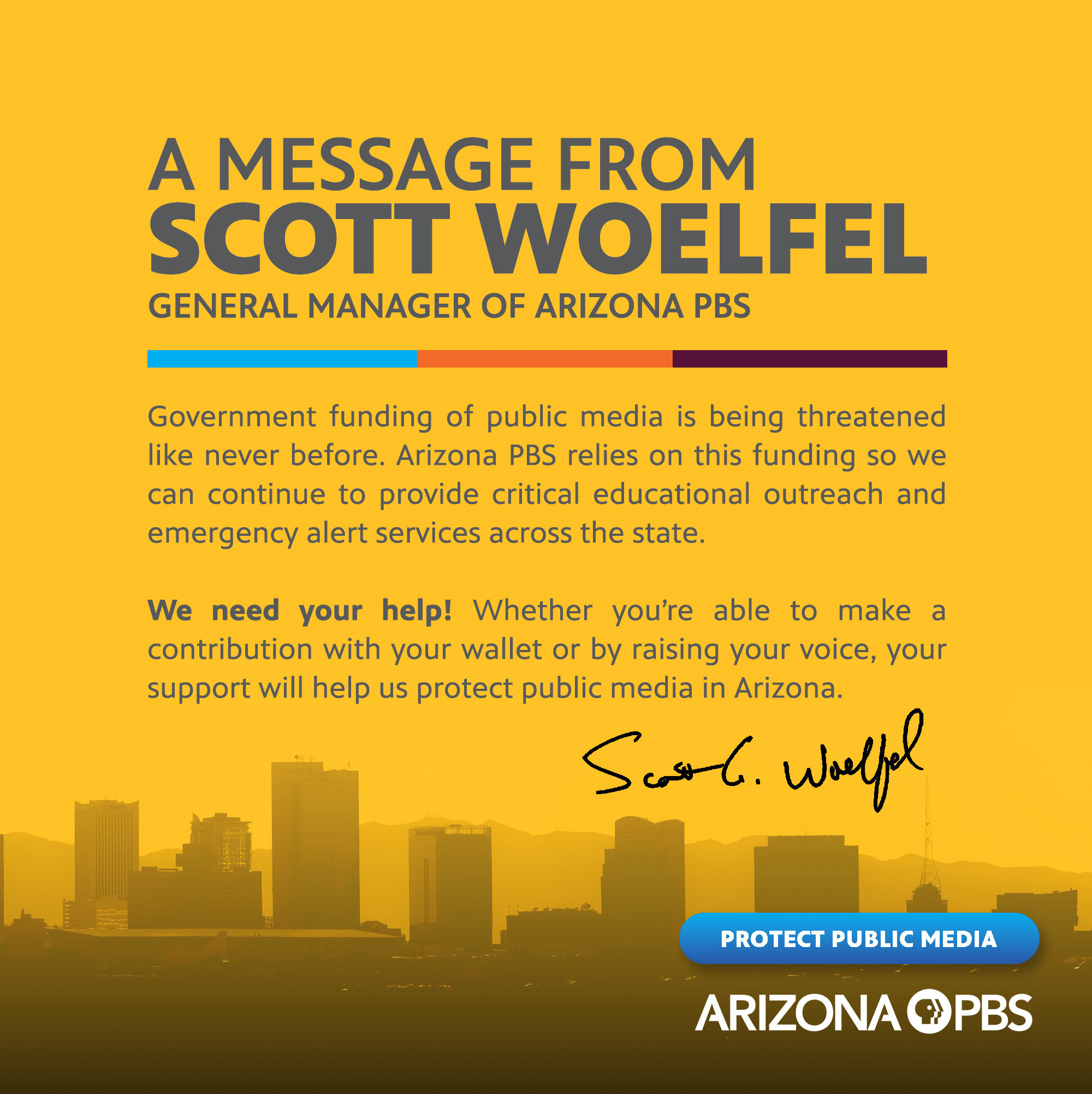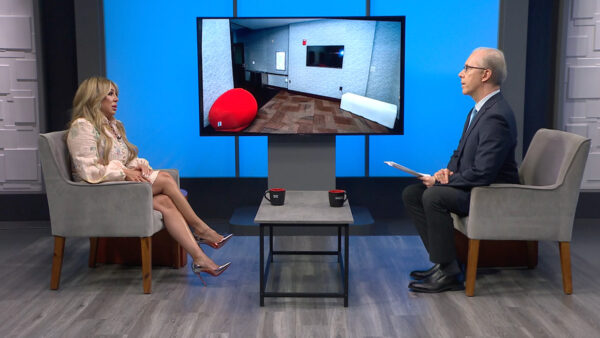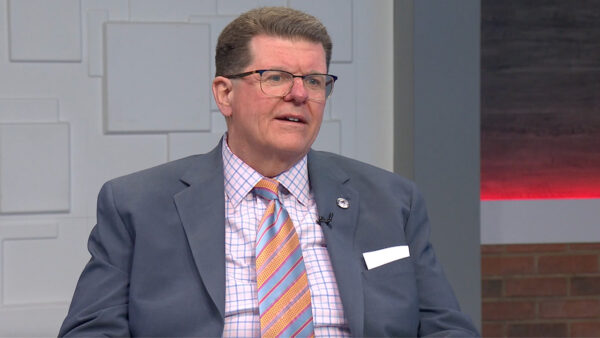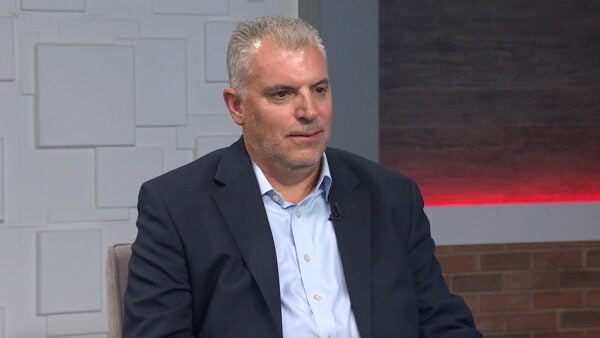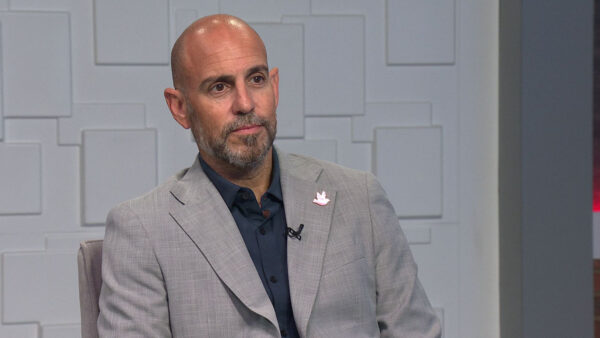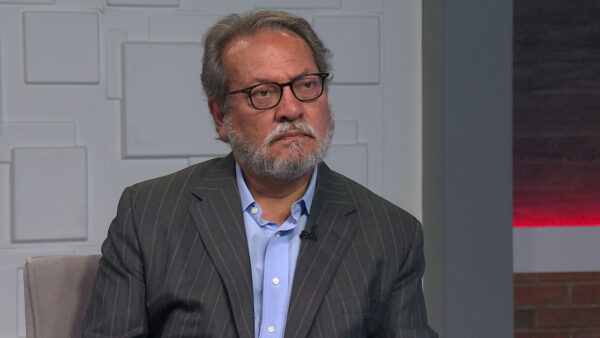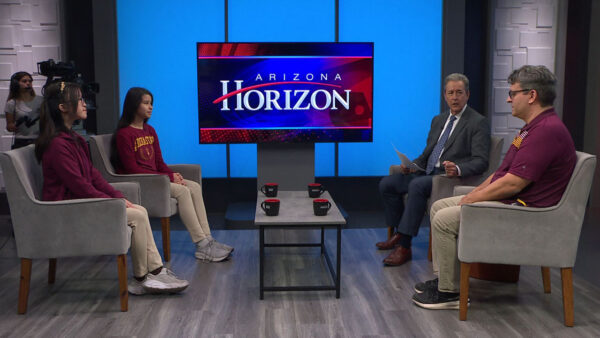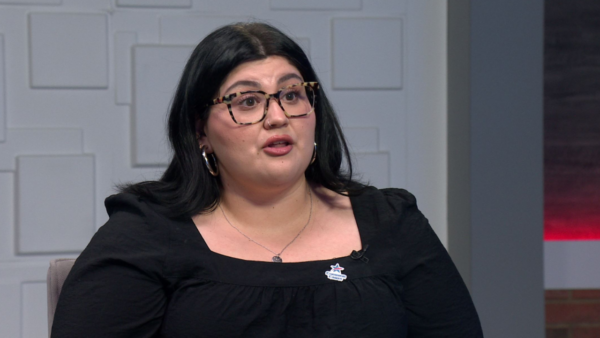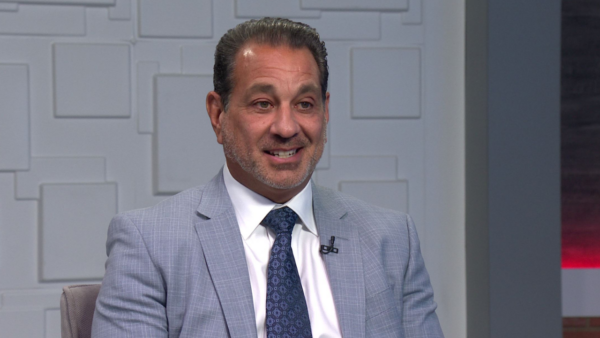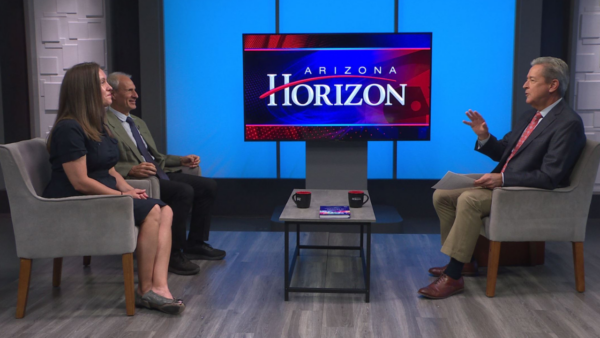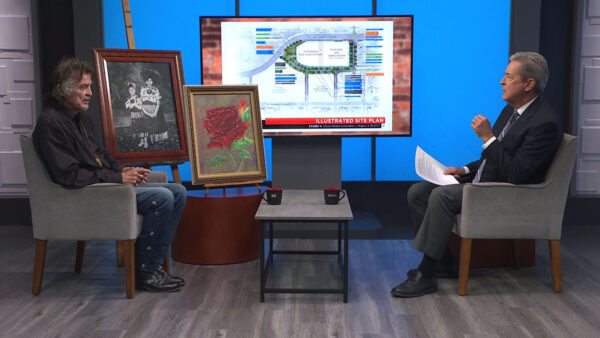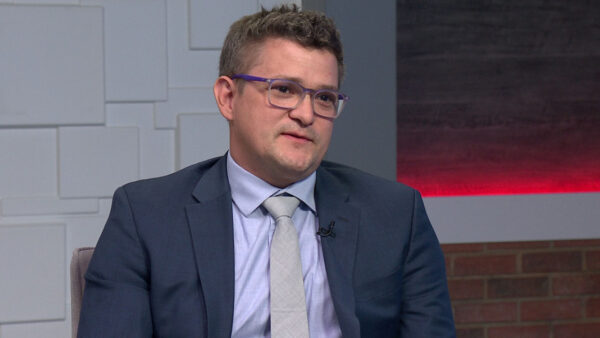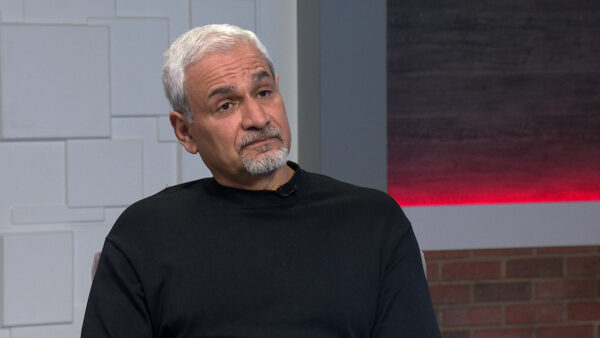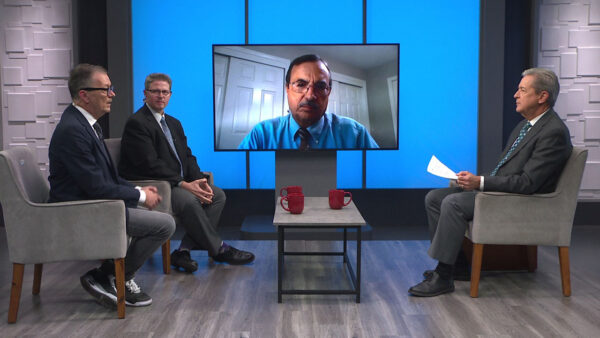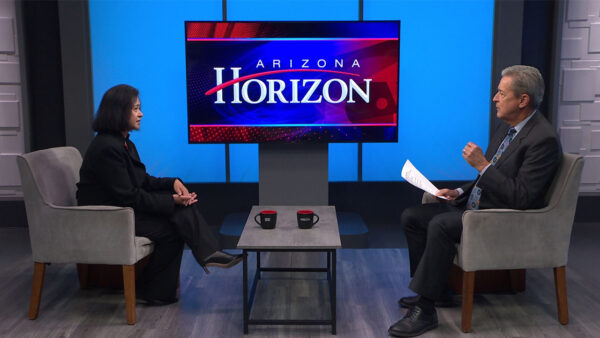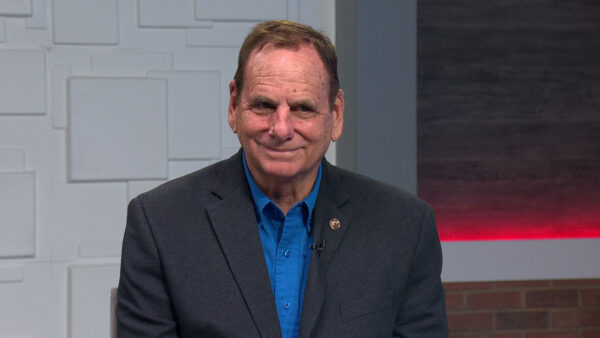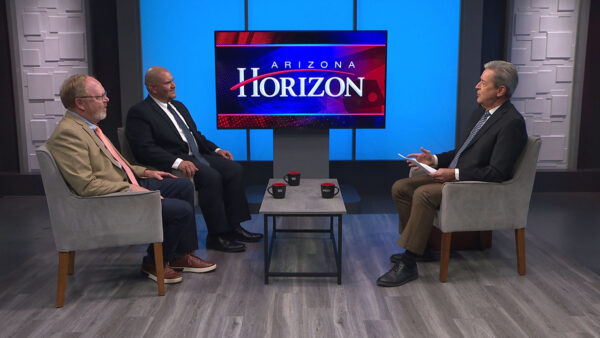A bill being tied into the new “Common Core” education standards is facing strong criticism from those who see it as a national takeover of education. The bill, while not mentioning Common Core, would allow the state to transition from the AIMS test to another as a high school graduation requirement. Representative Heather Carter and Laddie Shane of the Maricopa County Republican Party discuss the pros and cons of the issue.
Ted Simons: Good evening and welcome to "Arizona Horizon," I'm Ted Simons. Representative John Kavanagh is scrapping his idea to make it a crime for transgendered people to use the restroom of their choice. Kavanagh says the bill is an unnecessary reach of government. Instead, Kavanagh says he'll soon introduce a bill that protects businesses from lawsuits and criminal penalties if they deny transgendered people from using a restroom. The legislature is considering a bill that focuses on expanding common core education standards in Arizona. opponents of common core say the changes will remove local control over Arizona school curriculum. I'll speak with an opponent of the bill and common core, but first, here in favor of the bill is representative Heather carter. Good to see you, thanks for joining us.
Heather Carter: My pleasure.
Ted Simons: Very quickly let's define terms, what is common core?
Heather Carter: Thank you for having me on today, common core is a grassroots effort that Arizona has been involved in for about three, almost even five years now to set standards that are more rigorous than the standards that we have now to make sure that our students are career and college ready moving forward.
Ted Simons: And this would replace the aims test? I know there's a park test, the corresponding test and that means aims goes away?
Heather Carter: Let's dive into what the difference is between the Arizona common core standards and the park test. Let's talk about the standards 1st because we have to do that, we have to know what our students are learning in school. We have state standards that set clearly defined benchmarks of what students need to learn at each grade and, for example, the aims test which is a measure of our current standards is a 10th grade test and students continue attending high school all the way through 12th grade so the standards will be articulated all the way through 12th grade and tested all the way through 12th grade. That's a big change.
Ted Simons: So the new tests will be more university or secondary education, more ready for that sort of thing?
Heather Carter: Well, what the new standards do, and then the corresponding test that Arizona decides to do to test those standards will actually implement exams all the way from kindergarten to 12th grade and they're looking at skills that our students need to have to make sure that they are either college or career ready. Many of our students leave high school and go directly into the workforce.
Ted Simons: Let's talk about the concerns about this transition. First of all, this has been happening for a while, hasn't it?
Heather Carter: For many years.
Ted Simons: For like, what three, five, something along those lines?
Heather Carter: The conversations have been occurring for about the last five years but for the last three years, many of our school districts have already been moving to transition from standards that are really focused on rote memorization of facts and figures and to more implied standards.
Ted Simons: One of the major concerns is that Arizona would lose local control over school curriculum with this change. Respond please.
Heather Carter: That is just absolutely incorrect. Arizona is steeped in the rich tradition of retaining local control. We have locally elected school boards and what those school boards have the opportunity to do is to use the state standards then to devise a locally created curriculum to meet those standards and then all the way down to the classroom, the teacher gets to decide how that curriculum then is taught in the classroom. And that's what really a lot of the confusion is. People are misusing the term standards, curriculum and taking it all the way down to the teacher instruction. That is not what -the common core does.
Ted Simons: So for those who says that proof that it would take away local control is that the curriculum has to be tailored to what they see as a national standard, you say...
Heather Carter: If you consider a national standard that, for example, I brought one of them the old standard is demonstrating fluency of multiplication and division and the new standard would be fluency multiply and divide within using strategies such as the relationships between multiplication and division, I think multiplying and dividing is something that we could all agree on is an important standard.
Ted Simons: Another concern is there's been little or no public input on this change. Response?
Heather Carter: I would disagree. As a teacher, we've been talking about the common core for some time now. School districts have been having public meetings related to the common core. There have been ample opportunities for people to voice their concern and I find it strange at the 11th hour we're finding out that a lot of people have great concern.
Ted Simons: And there's also concern that it's a consortium of states that will wind up being a national kind of a program that takes away autonomy from Arizona because of this consortium of states outside of Arizona's control with again the idea that the curriculum is developed or at least I guess developed is the best word for that, elsewhere and then implemented in Arizona.
Heather Carter: Arizona educators both at the k-12 level and at the higher education level have been involved with creating these standards and they've been tailored to meet the Arizona educational needs. I mean, this is part of our conservative governor's education reform agenda. We have a variety of business leaders who have come down to the capitol and expressed great support for the Arizona common core and the corresponding tests, which Arizona is part of the park consortium.
Ted Simons: There's things like American history will be watered down or changed to fit some sort of type of U.N. agenda here. Valid?
Heather Carter: I'm so glad you brought that up, if you read the common core standards, they are English and math. There is nothing related to history in the standards.
Ted Simons: Okay, so do you -- is the likelihood of legislation blocking this, is that possible?
Heather Carter: In terms of legislation moving forward, a variety of different forms that legislation can move forward, they can move forward in single bills, they can move forward as amendments on other bills, they can move forward in budget bills.
Ted Simons: I lied, last question is this. Are you surprised by the opposition?
Heather Carter: Are yes I am absolutely surprised by the opposition because I have heard none of this over the last few years we have been talking about the Arizona common core standards.
Ted Simons: We thank you so much for joining us tonight. We appreciate it.
Heather Carter: My pleasure.
Ted Simons: Here now to speak against Arizona adopting the common core education program is Laddie Shane, education policy advisor for the Maricopa county republican party. Good to have you here, thanks for joining us.
Laddie Shane: Thanks ted.
Ted Simons: How do you see common core?
Laddie Shane: I see common core as well the definition of common core, if you look at other groups that have developed it, it is k- content standards for English and mathematics. I see it as exactly that, but what I also see it as, it's designed as a federal program, it is part of federal grant money to be implemented in the state. So, you know, I hear it's a state-led effort developed by the states. That may be -- anything can be led by states if you bring people from other states. You can title it that but what I think really what is common core, it is a way for our federal government to be impugning on states their 10th amendment to decide what the education system is in their state.
Ted Simons: It sounds like Arizona, though, it at the forefront of developing these common core standards and leading this consortium of states. If Arizona chooses to go that direction, is that wrong?
Laddie Shane: I think that there is a problem with going in this direction because if we have the tools to do it, why don't we do it ourselves? Why do we need the federal government putting together a system for us? If we have the tools, why shouldn't we develop it? I've spoken to many teachers. I'm an education major at asu, my aunt's a teacher, I have brothers and teachers that are still in school. I've spoken to many teachers that are on both sides of the political spectrum and they will tell you they like the idea of common core but they have a problem with the implementation. I hear that, that there were people in Arizona that developed it, why didn't we develop it? What I've we taken so long and if we did develop it, why are we still waiting for the assessment to be written because the assessment is not written yet to test the students on the standards.
Ted Simons: If Arizona does decide that it's going to help develop this and yes, we want to make sure that it coincides with what other states are looking at and make sure that we're not far afield or maybe they've got a good idea that we can implement as well, what's wrong with that?
Laddie Shane: I think that we can do that but I think it should be more competitive. I think if we're saying that these are the standards for all the states, we're going to flatline it. Each state is developing their own standards where it's more competitive. A competitive market is going to produce a better product and that's what we need in our state. And then I hear that we need to know where we are nationally. There's a reason why colleges require a sat and act. There's a reason the stanford nine is in all the states. There's a reason there are tests to rank us nationally. I have data right here that I can show you where we are ranked nationally on our reading proficiency. There are ways to test that.
Ted Simons: The idea that this is some sort of a federal, national governmental control of the state's education system, do you buy that?
Laddie Shane: I believe it is that. I do believe that and the reason I believe that is because the federal government if you wanted education money, if you want the funding, then you need to put in your application that you're going to accept common core. January of 2010, you can see it in the minutes of the state board of education, they said they did to do that to do that. So I believe the federal government is coming in and saying if you want the money, you've got to accept this program.
Ted Simons: Why do you think the federal government's doing that?
Laddie Shane: I think the federal government wants to impugn on states and put their thumb on it and look over our education system and decide what our states are teaching.
Ted Simons: Why? My question to you, I'm trying to figure this out, from your angle why again would the federal government want to do that? Why?
Laddie Shane: Because they want control, they want -- what they want to do is they want to be able to control what is going on at the state level in the schools. They want to control the curriculum.
Ted Simons: But this is something that a consortium of states has come up, granted it could be from your viewpoint some prodding from the federal government, but the states again are deciding this and many supporters say that states will have control over the curriculum.
Laddie Shane: From what I understand is you cannot delete or take out the standards, you can add 15% to the standards of what we choose as a state and my question is if all these states came together, why are there 14 states right now fighting against us and nine of them have legislation in their legislature to not do the common core?
Ted Simons: The other side say why are there so many others that are on the other side of the issue but my last question to you is regardless of whether you see this as a federal, even some more nefarious plan here, we've heard this is going to be a U.N. plot. I'm not going to ask you that. Is this a better way to educate Arizona children?
Laddie Shane: I don't think so. And the reason I don't think so is because I believe that it all comes down to what's going on in that classroom. I believe that we have amazing teachers here in this state. I believe we have amazing universities and I believe they can come together and decide the standard. I don't think that we need the federal -- you look at history on the history of education, when U.S. people, we were number one in education, it was before we had the U.S. department of education. I don't think we need the federal government to do that. I think Arizona has our ways to make ourselves better than everybody else.
Ted Simons: Thank you so much for joining us.
Laddie Shane: Thank you ted.
Heather Carter:Representative, Arizona; Laddie Shane:Maricopa County Republican Party;
